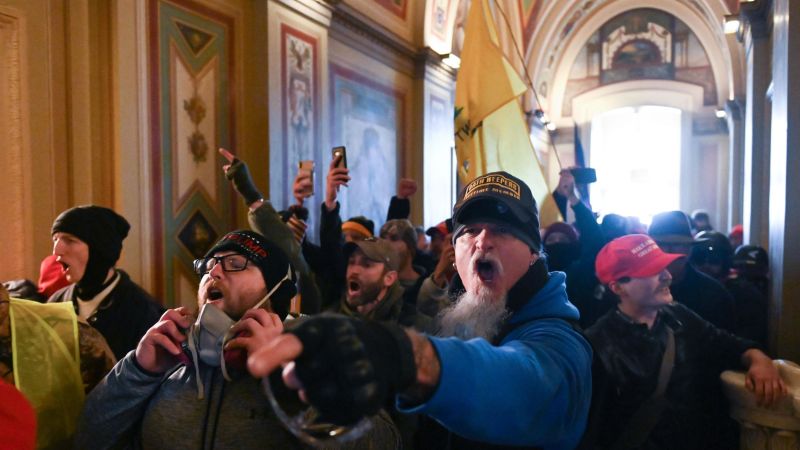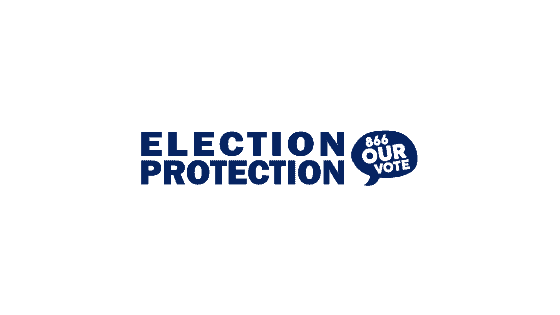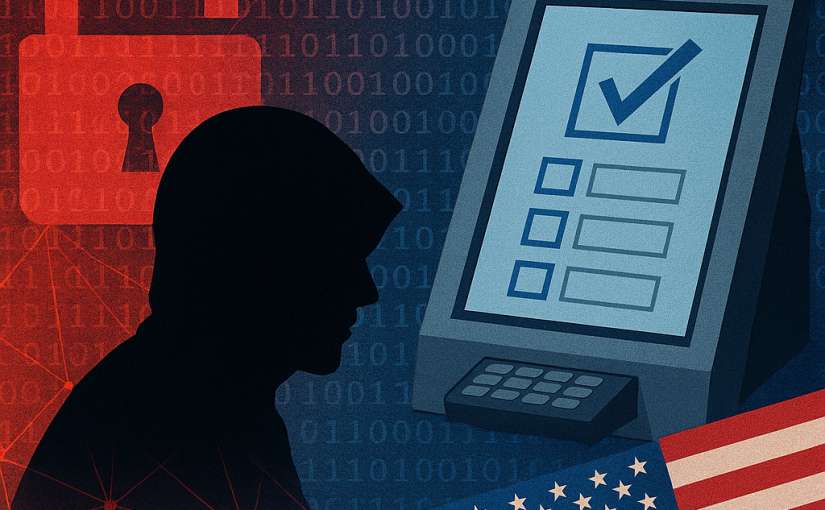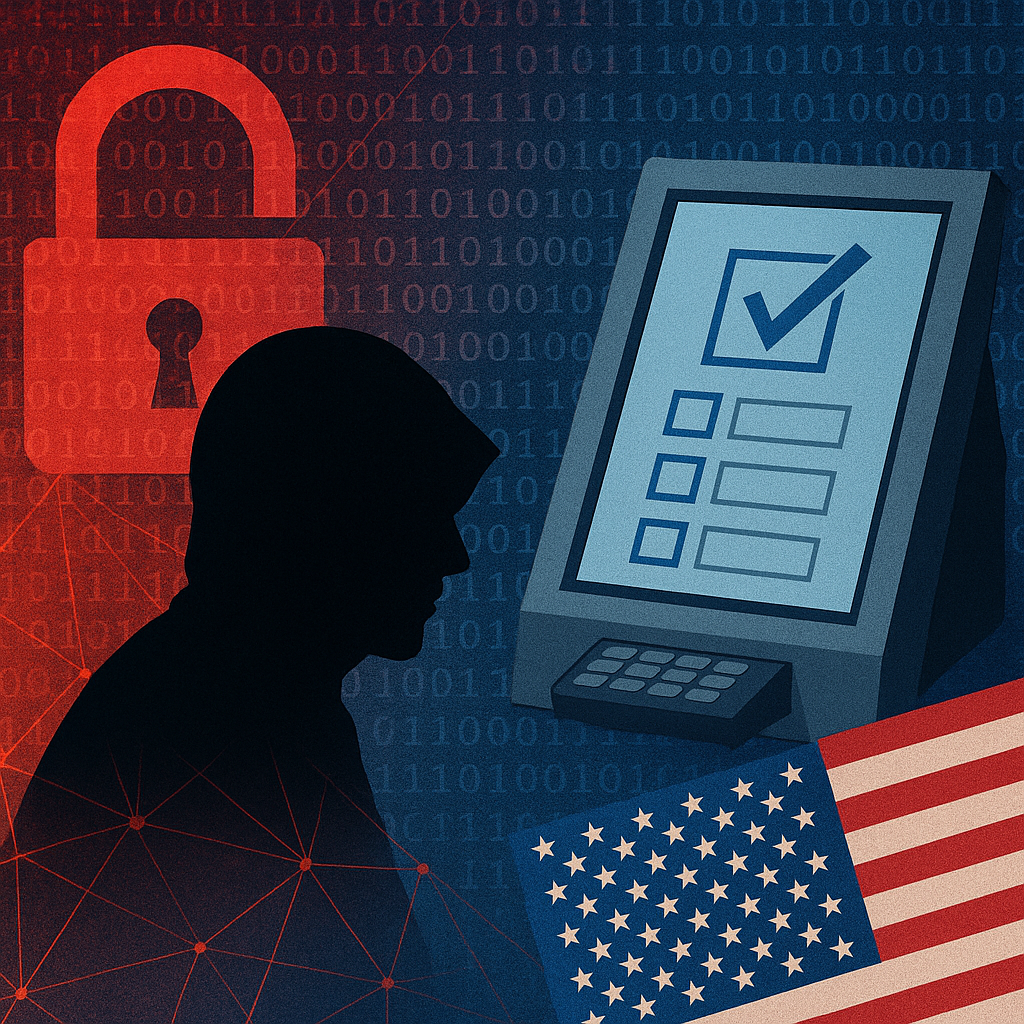Emerging Vote-Hacking Tactics
Cyberexperts have documented several modern strategies that can threaten election infrastructure.
At the grassroots level, security researchers at events such as DEF CON’s Voting Machine Hacking Village demonstrated new vulnerabilities in multiple ballot-marking and direct-recording electronic (DRE) systems already deployed in the field. Experts noted that fixes are often impractical before upcoming elections.
Beyond hardware, foreign adversaries such as Russia, China, and Iran have intensified digital interference efforts. These groups have deployed AI-generated media—including synthetic videos and social posts—to sow discord or undermine confidence in U.S. democratic institutions.
Disinformation remains an important vector. A University of Michigan study and other reports find that leaks of voter data, rumors of vote manipulation, and public fear can all weaken trust—even when systems themselves remain secure.
Budget Cuts and Reduced Federal Support
As cyber threats escalate, federal funding and support systems have been scaled back.
In early 2025, the Department of Homeland Security ended approximately $10 million in annual funding for the Center for Internet Security’s election-specific cybersecurity initiatives, including the Elections Infrastructure Information Sharing and Analysis Center (EI-ISAC) and the Multi-State ISAC (MS-ISAC). The termination of these programs disrupted threat intelligence sharing and coordination among state and local officials.
In March, the administration froze CISA’s election security work as part of an internal review, and placed more than a dozen staff on administrative leave. In addition, CISA’s overall budget faced deep cuts—initial proposals sought nearly $500 million reduction and potentially eliminated up to a third of the agency’s workforce.
The defunding extended to MS-ISAC, which supports 19,000 local governments with cyber threat resources. CISA’s halving of that funding threatens to force the center toward a paid membership model, limiting access for many jurisdictions.
Functional consequences are significant: a Brennan Center survey found that 61% of local election officials expressed concern about CISA’s reduced cybersecurity services; 87% said they expect state and local bodies to fill the gaps.
Budget Shifts: Offensive Over Defense
While defensive cybersecurity efforts were reduced, the administration proposed increased spending on offensive cyber capabilities.
Through the “One Big Beautiful Bill,” the U.S. earmarked $1 billion over four years for offensive cyber operations—most notably to support Indo-Pacific Command activities. This move came even as civilian cybersecurity funding was slated to drop by $1.23 billion in 2026 compared to 2024, and CISA’s workforce shrank by a third.
Foreign Interference and Intelligence Reductions
Reducing intelligence oversight has compounded concerns. The administration downsized the Office of the Director of National Intelligence (ODNI) by more than $700 million and dismantled the Foreign Malign Influence Center, which had focused on detecting foreign interference in elections.
Consequences for Election Security
The combination of emerging hacking threats and diminished federal support has placed greater burden on state and local election officials.
Security incidents—from hardware vulnerabilities to AI-assisted misinformation campaigns—continue to evolve. But with diminished support from CISA, EI-ISAC, and ODNI, officials lack timely threat intelligence and coordination essential to defending electoral systems.
As one local official warned, “We will find a way to protect our elections,” but voiced alarm over the loss of real-time intelligence that had previously helped intercept cyber intrusions.
Looking Ahead
Protecting U.S. elections requires sustained investment—not only in technology, but also in federal coordination and resilience planning at the local level. Without such support, modern threats—from hardware sabotage to viral AI misinformation—may proliferate unchecked.
Rebalancing federal cybersecurity priorities toward defense and coordination may help restore shared safeguards and public confidence in the electoral system. Whether that shift occurs—including through renewed funding, legislation, or partnerships—remains to be seen.
Bibliography
- https://en.wikipedia.org/wiki/Republican_Party_efforts_to_disrupt_the_2024_United_States_presidential_election
- https://www.iss.europa.eu/publications/briefs/future-democracy-lessons-us-fight-against-foreign-electoral-interference-2024
- https://en.wikipedia.org/wiki/Chinese_interference_in_the_2024_United_States_elections
- https://www.upguard.com/blog/2024-u-s-election-integrity-threats-not-just-data-leaks-and-hacks
- https://democrats-cha.house.gov/sites/evo-subsites/democrats-cha.house.gov/files/Election_Security_Update_v5.pdf
- https://apnews.com/article/6c437543f5d26d890704e5f2a8400502
- https://en.wikipedia.org/wiki/Republican_Party_efforts_to_disrupt_voting_after_the_2024_United_States_presidential_election
- https://ohiocapitaljournal.com/2025/07/22/local-election-officials-worry-about-federal-cuts-to-security-survey-shows
- https://www.democracydocket.com/news-alerts/trump-administration-proposes-more-drastic-election-security-cuts
- https://cyberscoop.com/trump-administration-proposed-cisa-budget-cuts
- https://www.hivesystems.com/blog/the-federal-cybersecurity-cuts-in-the-bbb-are-real-and-theyre-already-hitting-home
- https://www.nextgov.com/cybersecurity/2025/06/cisa-projected-lose-third-its-workforce-under-trumps-2026-budget/405726
- https://www.axios.com/newsletters/axios-future-of-cybersecurity-f003f5d0-7e20-11f0-91cb-ef3bf9fdf7e4
- https://statescoop.com/local-election-offices-cisa-brennan-center
- https://www.tomshardware.com/tech-industry/cyber-security/u-s-earmarks-usd1b-for-offensive-cyber-operations-despite-broader-efforts-to-slash-cybersecurity-spending
- https://www.techradar.com/pro/security/trumps-one-big-beautiful-bill-act-gives-usd1-billion-in-funding-to-offensive-cyber-operations
- https://apnews.com/article/e982e5364481d41a058e2bd78be4060f












